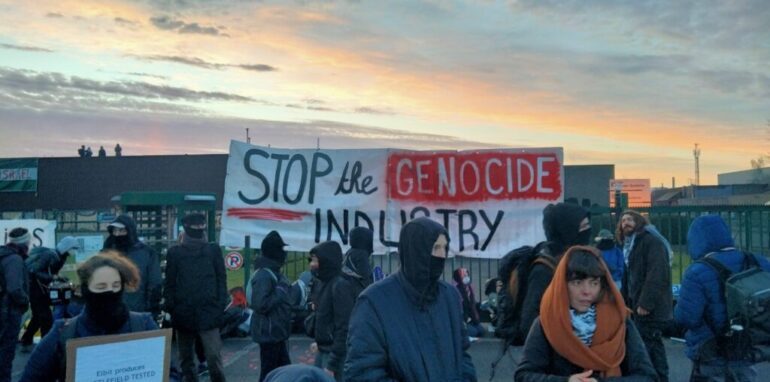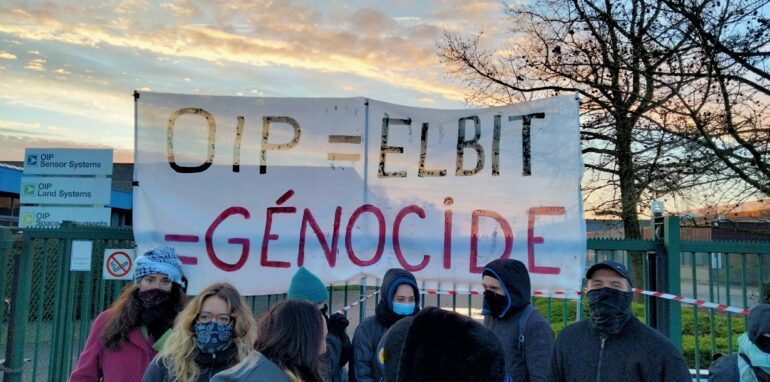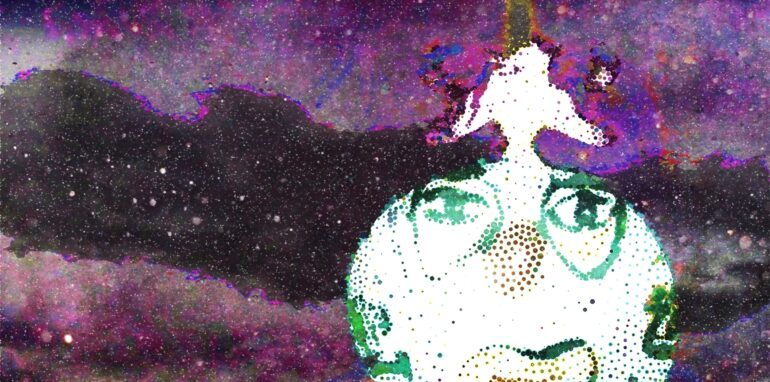(Seven Questions Lecture Series ETHZ April 21 2021)
(0) Are the real questions not eternal and almost all answers provisional?
(1) Where do we go to? (“Woahommenoatoe? Woahommenoatoe!”)
(2) Does history have a direction, and if so, a destination?
(3) What is wrong with the Anthropocene?
(4) Is history not more than just human history?
(5) Could the Great Acceleration not be the beginning of inevitable collapse?
(5b) Why do we hear so little about the Sixth Mass Exitinction?
(6) Why are humans so destructive?
(7) How to end the Anthropocene?
***
(0) Are the real questions not eternal and almost all answers provisional?
It is easy to formulate questions, isn’t it? Children love it, philosophers love it – don’t they? Does this suggest there is a deep connection between philosophers and children? What could it be? That both like to be amazed maybe? That they find the world amazing? That they try to look at the world as new, or to the old world afresh, as flabbergasting, full of questions and questionable things? Aren’t questions the best way to express awe? however, philosophers, in contrast to children, tend to give nothing but answers, don’t they? Aren’t many questions in fact rhetorical questions, that contain the answer in themselves? Asking the question is responding it, isn’t it? If every answer can be turned into a question, then every question can be turned into an answer, or not? But then, the real big questions, all of them childish, don’t seem to have an definitive answer, do they? Why do we live? Where do we come from? Where do we go to? What is good? What is truth? What is beauty? What is happiness? Does god exist? And if so what would it be? What is human? Where does language come from? Why do we speak? What is culture? What is nature? None of these questions have a definitive answer, as they are philosophical questions, aren’t they? It is a reason for desperation, for frustration, existential helplessness, even alienation, but, it is also a consolation, for if there would be a definitive answer, we would live in a totalitarian world of definitive answers, wouldn’t we? Religious fanatics and extremists, authoritarian leaders live in such a dreamworld, don’t they? Or do they only do as if? Difficult to know, isn’t it? Difficult to believe that climate negationists really believe that there is nothing wrong with the climate, no? They seem not at all aware where the world is heading, do they? They are like extraterrestrials, aren’t they? We could conclude that real Questions are eternal, and almost all answers are provisional. Couldn’t we?
But, as I am a philosopher (and to tease the brief) I want to avoid the easiness of eternal questions without answer (it is too easy and in the end oftentimes just an alibi for innocent amazement): here some questions for today, for this day and age, the Age of humankind, the geological epoch of the Anthropocene. Old questions that got a new urgency.
(1) Where do we go to? (“Woahommenoatoe? Woahommenoatoe!”)
Is this not the first and last question? The primordial and ultimate question? Particularly today, in the geological age of man, of humankind, the Anthropocene, which confronts us with climate change and the scary loss of biodiversity? ‘Where do we go to?’. It is a question at least as old as the modern times. “Woahommenoatoe? Woahommenoatoe!” is an old expression in my Flemish dialect. It expresses a deep rooted alienation at work in modernity, even my granny’s granny, maybe thought already that modernity was about ‘unhingement’, and of course it is there in all sorts of forms in literature, not only since romanticism, but from the origins of modernity, …it starts with Hamlet: ‘the world is out of joint’. In my childhood region this question, ‘where do we go to?’, was in olden days used to express dismay about this changing world. “Woahommenoatoe? Woahommenoatoe!” I heard it often as a common place from common people in social occasions, like in cafés and family gatherings, as a void topos, a stop-gap. At the same time it expressed for me (as a child philosopher, as a philosophical child) this deep perplexity about the modern world. In West-Flemish dialect, they eat everything, so it sounds like one word, a sound cluster: “Woahommenoatoe? Woahommenoatoe!” In itself, the question is very factual, ‘where do we go to’ means for instance ‘which pub do we go to?’. But, repeated, – “Woahommenoatoe? Woahommenoatoe!” – it becomes this strange, moralizing expression of consternation about the ways of the world. Although it has the banality of an expression, it is quite difficult, if not impossible to translate, as its meaning also largely depends on the circumstances and the situation it is used in: Where is this leading us? How did we get that far? What went wrong and where? The world is going to pieces, we lost the ancient ways, we went astray, can we still tolerate this sort of behavior, etcetera. Maybe the best translation would be: in what kind of world do we live? There is also gestures that goes with it: touching your forehead, or even better waving your hand along your face, a very old fashioned gesture of disapproval and dismay. Now we only use this expression with irony, as most proverbs, and now I realize, that also the gesture that goes with it, is outdated. Like proverbs die, also gestures go extinct. These gestures from yesteryear are quoted with more or less tender irony. But yet, this expression comes to haunt me again since quite a while, but with more pressing urgency since I write on the Anthropocene (which before I knew this very recent term, I called the ‘permanent catastrophe’ in an essay of 2001, and then ‘the age of disaster’ and in my latest book even ‘the age of collapse’ Even if we were asked not to do self-propaganda, it is called ‘Ending the Anthropocene. Essays on Activism in the Age of Collapse’, the third volume of my Millennium-trilogy. It just came out.) Where the hell is all of this leading us? Good question. And even the hidden exclamation mark in the expression is dear to me. This is going all wrong. “Woahommenoatoe? Woahommenoatoe!”
(2) Does history have a direction, and if so, a destination?
Big question. A headache, really. But first, what is history? Not as easy as it seems. The series of events that make up the human adventure, could be a straightforward definition. History has a direction, the arrow of time, history then is all things past, but has it a goal, a target, a terminus, a destination? Strange, awkward, almost metaphysical if not theological or religious question. In philosophy, history was not a topic before the age of enlightenment, which is very late, as philosophy existed already 2000 years back then. In Spinoza, Descartes or Leibnitz you will not find any consideration on history, not one. It is thinkers like Kant who discovered history, and for them immediately it had direction: progress. It has to be said that Aristotle skimmed the question, when he said, in his Politika, that if there is amelioration in medicine – his father was a doctor – then it is conceivable that there is amelioration in law and political organization. But, not being really progressive, he leaves it at saying that changing laws is tricky and best done cautiously. But it is exactly this comparison that led Kant and several other thinkers of enlightenment, like Turgot, to conceive progress starting from the undeniable progression in science and machinery in their age. For Kant, human fulfillment was the eternal amelioration of laws and organization of society to make up for the lack of amelioration of humans as individuals. From our perspective, progress in technology is undeniable – from the first extension of our fist which was the hammer or even the spear to the extension of our brains which of course is information technology and artificial intelligence: the vector, the vortex of technology. But even if the progression of technology and science, technoscience, is undeniable, the question of progress in society remains iffy, at best. It is not by incident that this believe in progress got a serious blow with the two world wars, and if you look at the world today, you can understand Walter Benjamins ominous fragment: ‘the concept of progress should be founded in the idea of catastrophe.’ The term Anthropocene trying to capture the enormous, devastating impact of the human species on earth’s systems could be a name for this progress as disaster. So…
(3) What is wrong with the Anthropocene?
What exactly is the Anthropocene? Easy, it is the geological era of humans, not to say Man. The term was introduced around 2000 to name the impact of our species in geological terms. The term is not yet officially accepted by the International Geological organization for stratigraphy, but the Anthropocene Working Group proposed to accept it and moreover made a choice for the last of the four possible golden spikes, to mark the beginning of that geological epoch. Not the agricultural revolution, not the so-called Orbis-spike, marking the reforestation after the decimation of the native population of the America’s by colonization, not even the industrial revolution, but the first atomic test (We will see later on why). The term has immediately been criticized severely, because it shifts the blame on all of mankind, whilst it is capitalism that should be blamed. Hence, ‘Capitalocene’ (Jason Moore, Donna Haraway). Or colonialism, hence Plantationocene (Anna Tsing). Also ecofeminists thought it was a macho term, suggesting a triumphant march of man through history as his story. Isabel Stengers wants another history: her story. But I think we should embrace the term exactly because it confronts us with all these big questions at once. So let’s move on.
(4) Is history not more than just human history?
At the same moment that Anthropos seems to be central in history, many thinkers decentralize humankind. The Anthropocene exactly proves that nature is not a neutral backdrop of the drama of human history, but is an active, dangerously active, actor in this play. The intrusion of Gaia (Lovelock, Stengers, Latour). So, we should make a sort of post-human turn, and maybe also a post-humanist turn, in looking at history (Haraway, Tsing, Braidotti). One way to do this, has been called ‘Big History’. What is big history? Have you heard about big history? I discovered it lately, shall I share my discoveries? Big history wants to tell the story of the universe from beginning to end, from the Big Bang to the present (the great acceleration) and beyond. One of the problems with that sort of history is that humankind, like with the term Anthropocene, becomes one subject and all the crimes of capitalism (also crimes against humanity), like slavery (maybe the biggest crime against humanity in world history), colonialism, extractivism are swept under the carpet. This is what I found on the official website of the Big History project: “We are becoming increasingly aware that the decisions made in the recent past, and those made in the near future, will determine the direction of life on our planet. Many leading scientists believe that our species have time to change behavior and implement positive new technologies. In other words, human ingenuity will see us through this decisive period, but it will take the commitment, innovation, and cooperation of humans across the planet to accomplish this.” This is not at all the co-feminist decentering of history, quite on the contrary. It is a sort of technocratic optimism, that calls itself often ecopragmatic but can become deeply problematic. No wonder Bill Gates loves and supports it! Here a quote that bugs me for a few month now, it is by ecopragmatist Steward Brand: ‘We are as gods and we might as well get good at it’. Gates must love that too, I am sure. That is what is wrong with the Anthropocene, wouldn’t you think? It still and more than ever wants to see humans as destined to govern nature, destined to become gods, and get good at it. It trust we can solve this with our ingenuity, like in geo-engineering (large scale climate control by dimming the sunlight, by aerosols for instance), but geo-engineering can only be understood in the frame of theo-engineering. The fact that we are called to become gods via technology and science, as we were create after his image. Must sound Elon Musk and Bill Gates and Richard Branson as music in the ears. They all want to go to Mars…. This inexorable idea of Exodus. Is this not the true meaning of the Marslandings of this year? A sort of theology of technology, a technotheosophy! But is the true agenda not this: the happy few leaving the planet, leaving the unlucky many in an overpopulated, overheated, dying biosphere? (Big question mark.)
(5) Could the Great Acceleration not be the beginning of inevitable collapse?
What is the Great Acceleration? This is a real question! I mean for you, my audience. How many of you know this term? Every human being should know this term, don’t you think? The Great Acceleration is the fact that all possible parameters both socioeconomic and earthsystems are on a steep graph, of exponential or explosive growth. 12 are counted: population, real GDP, foreign direct investment, urban population, primary energy use, fertilizer consumption, large dams, water use, paper production, transportation, telecommunications and international tourism; all very step, particularly the last three ones. This leads to dangerous ‘side-effects’ on the Earth systems. Carbon dioxide steeply up since 1750 and especially since 1950, and of course even more so since 2000. Same for nitro oxide, methane (not only that our cows fart but wait till the permafrost thaws), stratospheric ozone, surface temperature, steeply up, ocean acidification, also steeply up, marine fish capture, a little bit down from being steeply up, but shrimp aquaculture incredibly steep. Nitrogen to coastal zone, topical forest loss, of course, going steady up, domesticated land – Flanders is still doing it with a passion, fill more land for human use – and last but not least terrestrial biosphere degradation, steadily up. Not good. These two tableaus combined give a graphic picture of the catastrophe we are in. We can rephrase our question: ‘Could the Great Acceleration not be the beginning of inevitable collapse?’ could sound like ‘can it be anything else?’ In fact many of the graphs are graphs of collapse. The great Acceleration that started more or less in 1945 (after the second world war) is the reason that the Anthropocene Working Group has chosen the atomic bomb as golden spike. But there is more. Let’s focus on the last one, the terrestrial biosphere degradation.
(5b) Why do we hear so little about the Sixth Mass Exitinction?
Do you know at all we are living the Sixth Mass extinction? It is also called Holocene or Anthropocene extinction. I hope you do. Here some quotes (from Wikipedia, so it is out there, in the open): “The 2019 Global Assessment Report on Biodiversity and Ecosystem Services, published by the United Nations’ Intergovernmental Science-Policy Platform on Biodiversity and Ecosystem Services, posits that] roughly one million species of plants and animals face extinction within decades as the result of human actions.” In November 2017, a statement, titled “World Scientists’ Warning to Humanity: A Second Notice“, led by eight authors and signed by 15,364 scientists from 184 countries asserted that, among other things, “we have unleashed a mass extinction event, the sixth in roughly 540 million years, wherein many current life forms could be annihilated or at least committed to extinction by the end of this century.” The World Wide Fund for Nature‘s 2020 Living Planet Report says that wildlife populations have declined by 68% since 1970 as a result of overconsumption, population growth and intensive farming, which is further evidence that humans have unleashed a sixth mass extinction event. A 2021 report in Frontiers in Conservation Science asserts “that we are already on the path of a sixth major extinction is now scientifically undeniable.” According to the UNDP‘s 2020 Human Development Report, The Next Frontier: Human Development and the Anthropocene: “The planet’s biodiversity is plunging, with a quarter of species facing extinction, many within decades. Numerous experts believe we are living through, or on the cusp of, a mass species extinction event, the sixth in the history of the planet and the first to be caused by a single organism—us.” Staggering, isn’t it? Even insects are dying upon us. I wrote a requiem for the garden spider (you know the one with the cross on its back). The Sixth Mass Extinction is not far away, but very near, in both time and space.
(6) Why are humans so destructive?
You feel like getting depressed just by asking, don’t you? Is it in human nature, that has no nature, no limits by nature? The will to power and all that? Or is it because of the system? Capitalism? Colonialism? … Let me suffice with a exercise in speechlessness (a moment of silence). There is no answer to this, it is just a fact, we have to live with. Even if it is unacceptable, and we should not accept it. Dark. Very Dark. Too dark. So, next…
(7) How to end the Anthropocene?
Indeed, the only option seems to be to end the Anthropocene. It will end itself somehow, but you don’t want to think how many humans and non humans will have to die or even go extinct before that happens. How to end the Anthropocene? Even if we don’t know yet when it has begun. I don’t have a clue, but somehow it is the question of our age. Woahoamenaotoe? Woahoamenaotoe? Where do we go to? Where is this leading us? How did we get here? How did it come that far? How did we come to this? It seems all wrong, doesn’t it? We seem to be overtaken by change, by complexity, perplexity, by fear, catastrophe, crisis, disaster, collapse, aren’t we? The possibility of collapse, in many forms and from many sides, collapse of biodiversity, collapse of species, collapse of the climate system, the collapse of societies, etcetera – the list seems endless, doesn’t it? Maybe we should learn to embrace collapse, shouldn’t we? It might be the only hope for the biosphere: a sudden halt, like the corona crisis, hypermodernity grounded, like our airplanes, slowing down, degrowth, slow food, slow travel, slow science, slow everything…. Collapsology is a discipline of the future! Maybe another end of the world is possible (as Pablo Servigne and Raphael Stevens claim)! By defending the global commons, the ecosystems, like we do defend our health system, as an absolute norm, beyond certain thresholds of intense care beds, all countries go in lockdown, well we should do exactly the same for the biosphere, it is on intensive care already, or should be. How to do this? The resurgence of commons, mutuality, reciprocity, redistribution? Another end of the world is possible, maybe. But is it probable? The possibility of collapse, the inevitability, the desirability of collapse almost, is the biggest brainbreaker of our age. And brings us back to our first question. “Woahommenoatoe? Woahommenoatoe!”
















